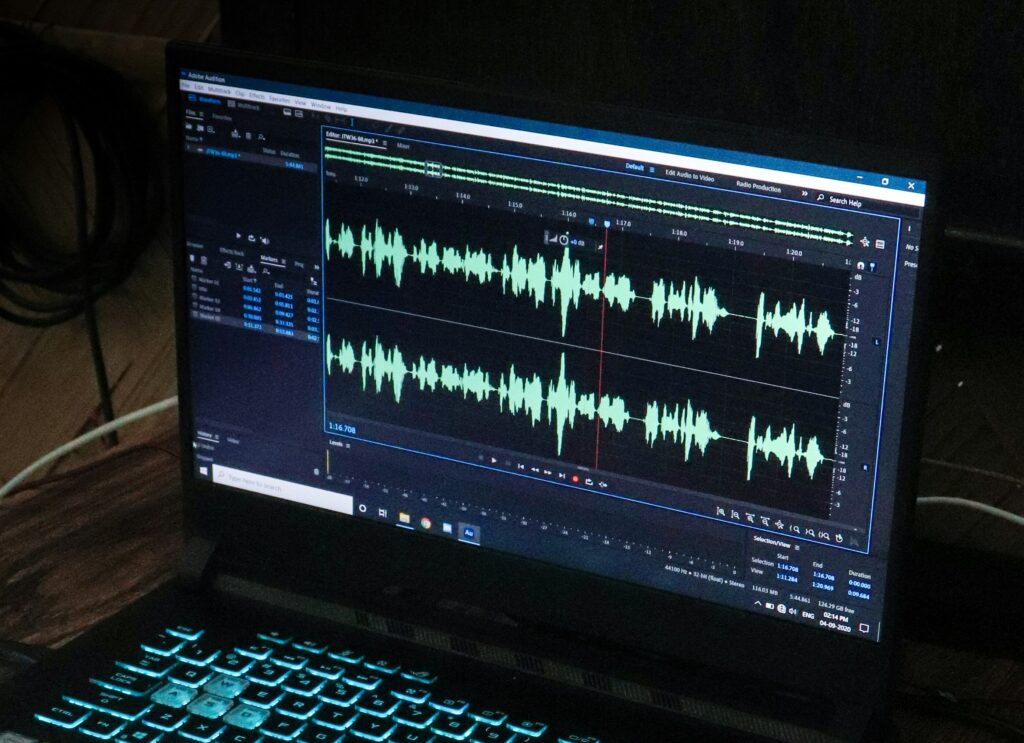TechNexus-backed Respeecher has cloned everyone from Darth Vader to Elvis through its AI voice tool, all while building its tech amid the war in Ukraine.

In 2022, as Russia began its invasion of Ukraine, Ukrainian startup Respeecher was relocating its team members from regions that were under attack while missiles and drones flew overhead.
Amid the air raid sirens, the AI voice startup’s sound engineer was also sending audio files across the world to Lucasfilm from inside a bomb shelter.
It’s emblematic of the resolve Respeecher’s team has shown in the face of war, CEO and founder Alex Serdiuk said. Beyond the devastating threat caused by the war– family and friends of some Respeecher employees were victims of the conflict, Serdiuk said–it also presented a serious threat to its business. Blackouts and other infrastructure disruptions made work a challenge, and the company needed contingency plans as the invasion was underway.
“We have plans B, C and D in place for electricity, internet connection, and for our ability to work,” Serdiuk said. “It’s just extremely hard. It’s another layer of complications and challenges.”
Despite those challenges, Respeecher, whose early investors include TechNexus and entrepreneur Gary Vaynerchuk, has managed to land blue-chip customers who’ve gravitated to its AI voice cloning technology. Disney and Lucasfilm partnered with the startup to recreate the voice of James Earl Jones’s Darth Vader for its Obi-Wan Kenobi series, making Jones sound like his character from 45 years ago. It also used Respeecher to recreate a young Luke Skywalker for Disney+’s The Book of Boba Fett.
Respeecher has developed a close relationship with Hollywood since it launched in 2018. Its voice technology is used in Netflix productions, including the movies Paradise and NYAD. It recreated Wilt Chamberlain’s voice in the Showtime project Goliath, and it was used to bring the voice of Robert Calvert, the frontman of Hawkwind, back to life in the film Mirror Mirror.
The startup won an Emmy award for its work on the documentary film In Event of Moon Disaster, where it recreated the voice of President Richard Nixon. It has worked with meditation app Calm to recreate actor Jimmy Stewart’s voice, and it was the technology behind the AI voice of Vince Lombardi during a commercial that aired before Super Bowl LV.
A focus on trust and consent
AI voice cloning has come under fire recently, like in the case of OpenAI’s “Sky” personal assistant. The voice assistant shared a striking resemblance to actress Scarlett Johansson, resulting in OpenAI pausing the use of Sky’s voice in its products after receiving backlash.
Bad actors have used AI to create fake audio recordings of celebrities like Emma Watson reading from Mein Kampf, and an AI robocall used President Joe Biden’s voice to call on voters in New Hampshire to sit out the primary election.
In the wild wild west of AI deepfakes, Respeecher takes a different approach. Its technology works alongside voice actors to train its models, and it requires consent before embarking on any AI voice project. Its tool isn’t open to the public, unlike other AI voice technologies.
“One of the most important things we wanted to avoid when we started this company and built this powerful technology is to ensure there is no misuse of this technology,” Serdiuk said. “The demand for synthetic voices is growing rapidly, and it’s being driven by unethical companies.”
Respeecher is one of 10 companies, including OpenAI, TikTok, Adobe and the BBC, that have developed a new set of guidelines on how to responsibly build and share AI-generated content.
A commitment to quality
Respeecher’s close relationship with the entertainment industry evolved as Hollywood took notice of the startup’s high-quality AI voice recordings, Serdiuk said. For its work with James Earl Jones, the company was able to recreate the actor’s voice of Darth Vader not as he would speak today, as a 93-year-old man, but as the character sounded more than four decades ago.
“[Lucasfilm] started to work with us because we are going to meet the quality required,” Serdiuk said.
It’s that commitment to quality that’s landed Respeecher other high-profile projects like the video game God of War Ragnarok. It made an appearance on America’s Got Talent by creating an AI-generated Elvis Presley. And it helped Aloe Blacc honor Avicii by translating his hit “Wake Me Up” in three different languages.
Respeecher’s deep relationship with Hollywood also created a new challenge for the startup during the months-long writer’s strike that halted production across the industry. The use of artificial intelligence was a sticking point for much of the strike, as Hollywood grapples with how the new technology will impact jobs and future production of TV and films. Luckily for Respeecher, the startup believes its approach of trust and consent, combined with a high quality of AI audio production, puts it in a position to thrive within Hollywood.
